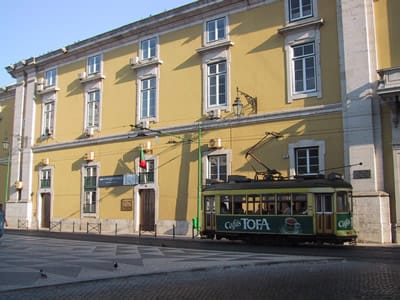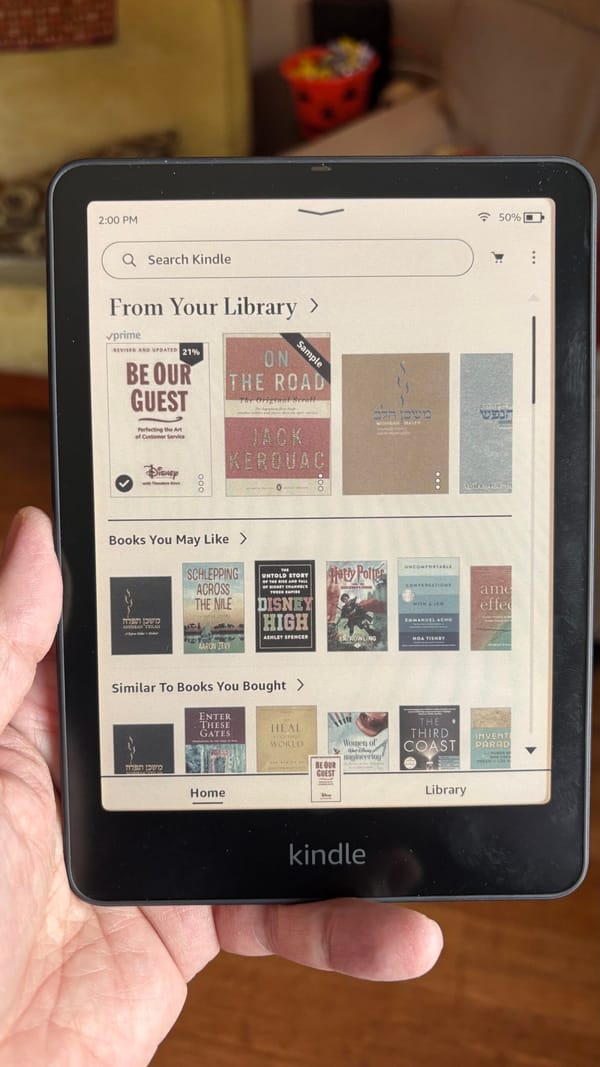Waiting for Portugal
One of the things I miss the most about New York City is the palpable presence of a Portuguese community. If Chicago had just one Portuguese restaurant my life would be a lot easier. I certainly never expected to meet the editor of a prominent Portuguese newspaper at a Greektown reception.

I don't usually go to power parties, but Val was persistent. A workmate whose body fate cast to the suburbs while cruelly leaving her mind yearning for more urban pleasures, Thursday night was to be the big party of the season, and I had to go with her. I had to help carry the beer. Up and down the courtyard stairs of a Greektown timber loft condo, just a hair's breadth away from David Schwimmer's own Chicago digs, as I was told not without some misplaced pride by Julia, our Europhilic host.
I don't mean normal Europhilic, mind you. I mean philic like bacterial culture to yogurt. Julia had recently seen the world as an exchange scholar with the German Marshall Fund, and now in return the world was getting to see her shared back deck. Well, if not the world, then definitely NATO. A fresh group of visiting Mashall Fund emissaries was in Chicago for the week, and one after another they made their way to Julia's to bitch about America over pizza and beer. As they trickled in, I bided my time. Hello, Romania. Nice shoes, Italy. Pardon me, Denmark, but could you scooch over an inch, you're blocking my view of the door. I came for one reason. I was waiting for Portugal.
There aren't many things I ever admit to having given up when I left New York City for Chicago. But one loss I've felt painfully for the past three years is the absence of a local Portuguese community. Not that I'm Portuguese, far from it. I'm Spanish, but you wouldn't know it from my last name, or the eight weeks I spent in Portugal in the early 2000s. But José, my best friend in New York, is Portuguese (so reread his name in your head, that's "zhoo-ZAY" not a Spanish "hoe-SAY"), and a cultural emissary all his own. In 2000, while we were visiting Paris together (his boyfriend won't get on an airplane, but that's another story), after one too many Parisians snubbed my admittedly American college French, I turned to José and asked him to tell me the days of the week in Portuguese. Then the months of the year. Numbers next.
The sounds of the language were amazing. Not sing-song, like the Italian-accented language spoken in Brazil, but guttural, harsh, staccato, as if Polish and Russian ran off to the Iberian Peninsula to have a linguistic love child. I instantly liked it. French sounds always seemed esoteric to me, but the sounds European Portuguese, those sounds seemed familiar, not strange at all. I liked them a lot, enough to spend the rest of my time in Paris having José teach me Portuguese.
Before I knew it I was back in Brooklyn and teaching it to myself, with the aid of a BBC tape course, a book of verbs, and the evening news read over the Internet by RTP's José Rodrigues dos Santos. My receptivity to such an insider contact with a friendly culture is not surprising. My bilingual mother raised my siblings and me entirely in English, Spanish was reserved for private conversations between my mother and her mother. I was brought up to be a white-bread American, and successfully so. I meet few other people who cannot claim any semblance of a familial heritage, but all my life I've felt none. I envied José -- both of them, not only did they have a heritage to speak of, but it was eight centuries old, at that. I jealously soaked in all the stories my José spun about Portuguese culture every time we got together. But learning the language added a powerful new dimension to the stories -- it made them real.
When I finally visited Lisbon for the first time, in late 2000, I visited in Portuguese. Having learned European Portuguese, as it turned out, was a source of much amusement and admiration for many a Portugal native who, almost universally, told me I was the only American they'd ever met in their lives who didn't speak Portuguese with a Brazilian accent. In Portugal, this, coupled with the fact that I, a Spaniard, had never set foot on the eastern side of the Castilian border, had locals practically asking me for my autograph.
And whether for reasons of my own Iberian heritage, cosmic forces at large, or mere chance, that first time in Lisbon I felt like I remembered everything I was seeing. I didn't know why and I suppose I never will, but I felt a memory of Lusitania (you know that means Portugal, right?) deep within me, and I've never, ever been able to shake it. Nor do I want to. I may not have had a heritage to claim as a child, but at the age of 30, much to my astonishment, an incredible, 800-year-old heritage performed the mercy of claiming me. And in return, I visited as often as I could, everywhere I could, up and down the country. And when I couldn't visit, I at least made grocery runs to the Ironbound, the Newark, New Jersey neighborhood with more Portuguese residents than any city outside of Portugal.
And then I moved to Chicago. After 9/11, life in New York City -- mine, anyway -- never recovered, and heading to the urban capital of middle America seemed like a good idea at the time. But though I knew there was a Brazilian community here (as evidenced by far too many inauthentic, overpriced churrascarias, but I digress), my homework didn't turn up much of a Portuguese one. I came on faith, anyway. The mistake, such as it was, was all mine. Culturally, I went from sixty to zero in one cross-country drive. Hello harder winters. Hello Lusophones from a Communidade dos Países de Língua Portuguesa country alien to me and, frankly, with an inscrutable accent. Good-bye buying Sumol, Sagres, and Luso-Americano at the grocery store, much less conducting those transactions in Portuguese. Good-bye, José. And given the long-term financial cost of the move I had made, good-bye Portugal, for that matter.
Having the carrot of an adopted heritage ripped suddenly away is no easy thing, especially when the one doing the ripping is you. My friendship with José suffered, my Portuguese skills atrophied, my depression level magnified, and having little other choice, painful as it was I pushed the thought of Portugal as far out of my mind as I could. I geek to other languages, Canadian French especially, and whenever I felt lonely for Portugal during the past three years, I'd pull out a Québecois play or novel and lose myself in that. Not a bad strategy, Québec was my great love before Portugal. But though I loved them both, Québec had always preferred to remain a platonic friend. Portugal, however, loved me back from the start.
So when I learned at Noon that Domingos Portela de Andrade, the executive editor of Portugal's leading newspaper, Jornal de Notícias, was going to be at Julia's party, I was dumbfounded. Well, why stop there? Dumbfounded, excited, terrified, thrilled, anxious through the pit of my stomach to below the soles of my feet, and completely and totally resolved to go. You meet few enough Portuguese in Chicago. Getting the opportunity to meet Domingos Portela de Andrade on the shores of Lake Michigan was almost beyond my ability to comprehend. As was any inkling of what on earth I would say to him, or how I would manage to say it in anything resembling Portuguese.
Luckily, I'm nothing if not a snoop. In aid of my case, I Googled the living hell out of Senhor Andrade. I wasn't surprised to learn I'd visited every Portuguese city he'd ever lived or worked in. Portugal is small, and I got around. At least we'd have something to talk about. I also spent the remaining few hours between me and potentially making a linguistic international incident out of myself carrying on a practice conversation with the wall of my cube in Portuguese. Muito prazer, o Senhor Parede. Obrigado pela sua presença no meu escritório. Como estão as suas belas secretarinhas?
He arrived not long after Denmark. I didn't know it for awhile. Like me, he enjoys the habit of wearing a phony name tag, just for the hell of it. I instantly liked him. Unfortunately, I was also suddenly being rapidly dragged over to meet him. He was holding court among a small United Nations of invitees. I wanted to sink through the floor when Julia introduced me as a half-Portuguese friend of a friend. I don't know what part of "honorary Portuguese" people fail to understand. I backtracked in English. I apologized for being nothing more than American, and Spanish at that. He told me not to worry. He told me in Portuguese.
Maybe it was the beer. Maybe it was just time. I responded back, in Portuguese. I went from zero right back up to sixty in the blink of an eye, sidestepped what I was sure was an incipient heart attack, and had a hell of a conversation. I told Andrade how I read his newspaper every day. How I missed the Portuguese community back home. How I taught myself the language. How much I hoped Portugal would beat England in the World Cup on Saturday.
While the people among whom he had been holding court looked at me in total disbelief that I wasn't, actually, a native, Andrade complimented me profusely on my accent and expressed his own disbelief that I had taught myself European Portuguese and not Brasiliano (OK, so I was prepared for that remark). I was rusty, halting at times. But I got the words out. Portuguese words. He took my email address and asked about my blog. We both teased the Romanian. I felt a lost piece of myself come back.
On the walk home, I wasn't as elated as I expected to be. Don't get me wrong, I recognized the miracle for what it was. To know that Portugal and Portuguese were both right where I had left them, waiting for me to find them again...I didn't need a pilgrimage to Fátima to see the door that had been reopened for me. But, even more than before, I'll have to face some hard work to keep it open. Portuguese podcasts have come a long way in three years. At least now I can carry the spoken language around with me wherever I go. But finding the few Portuguese who are here in Chicago, that'll be the real challenge. All I know for sure is that a copy of Todos os Nomes has been sitting hopefully on my nightstand yet again. Unread. Unopened.
It's time I changed that.




